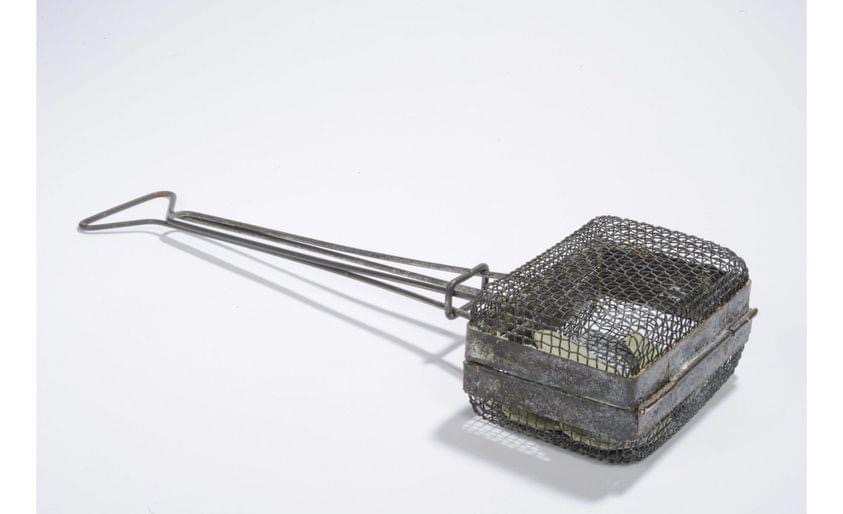Transition: Preceding the Age of Consumerism
Before the proliferation of liquid detergents and disposable culture, small tools like the soap saver played a pivotal role in homemakers’ daily routines, ensuring every resource was maximized.
Functionality of the Soap Saver
Often comprising a wire cage or mesh bag affixed to a handle, the soap saver was a common fixture in kitchens and washrooms. Its purpose was to collect and utilize soap remnants that would otherwise be discarded.
Transition: Simple Yet Effective Design
The principle behind the soap saver was straightforward yet effective. As soap bars diminished to small pieces, the device collected these remnants. Once a sufficient quantity accumulated, it was swished through hot water, producing suds for various cleaning tasks.
Role in Household Economy
This method not only prolonged the lifespan of soap bars, thus reducing household expenses, but also exemplified early forms of recycling and sustainable living.
Transition: Variations in Design
The design of the antique soap saver ranged from plain and functional to ornate, reflecting both aesthetic preferences and socioeconomic status. Despite variations, all served the common goal of maximizing soap usage.
Historical Significance
In the early to mid-20th century, the soap saver symbolized the thrifty mindset prevalent among households, particularly during times of economic hardship such as the Great Depression and wartime rationing.
Transition: Contemporary Relevance
Today, the antique soap saver holds a place of nostalgia and curiosity, prompting reflection on consumption habits and environmental sustainability.
Invitation to Reflection
In an era dominated by disposable products, the soap saver encourages reconsideration of values surrounding conservation and resourcefulness.
Lessons for Today
Revisiting the antique soap saver offers insights into past practicalities while urging contemporary society to embrace sustainability and simplicity in everyday life.

